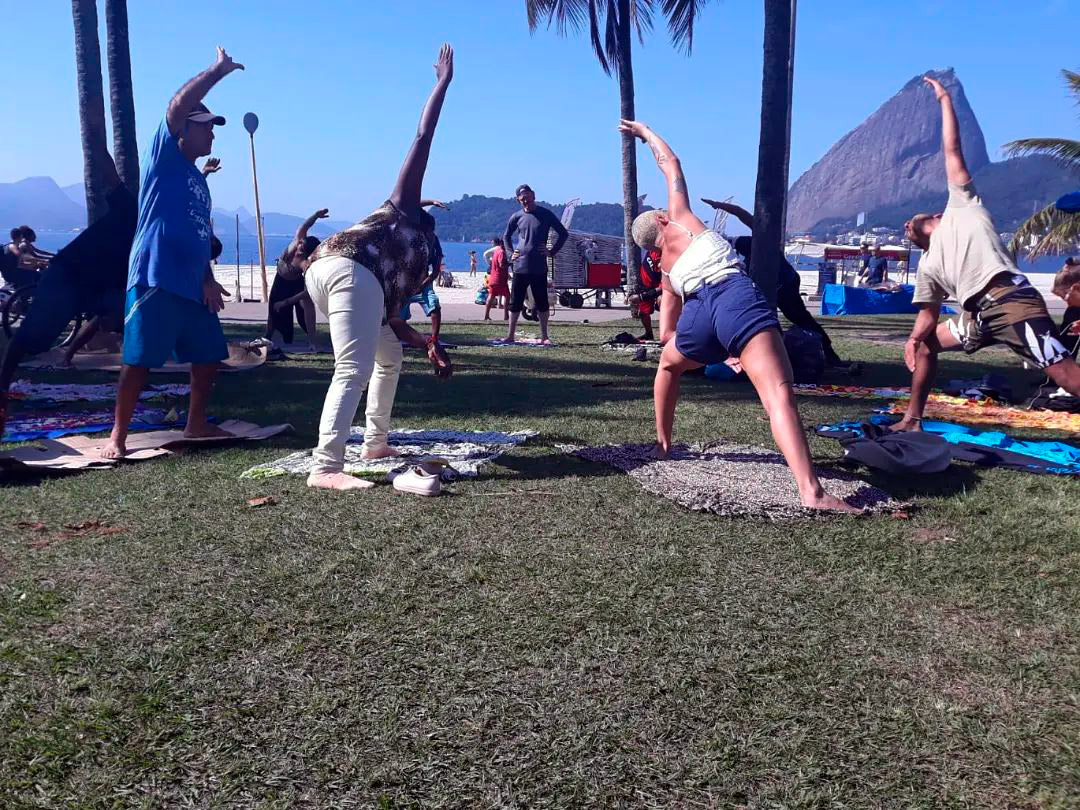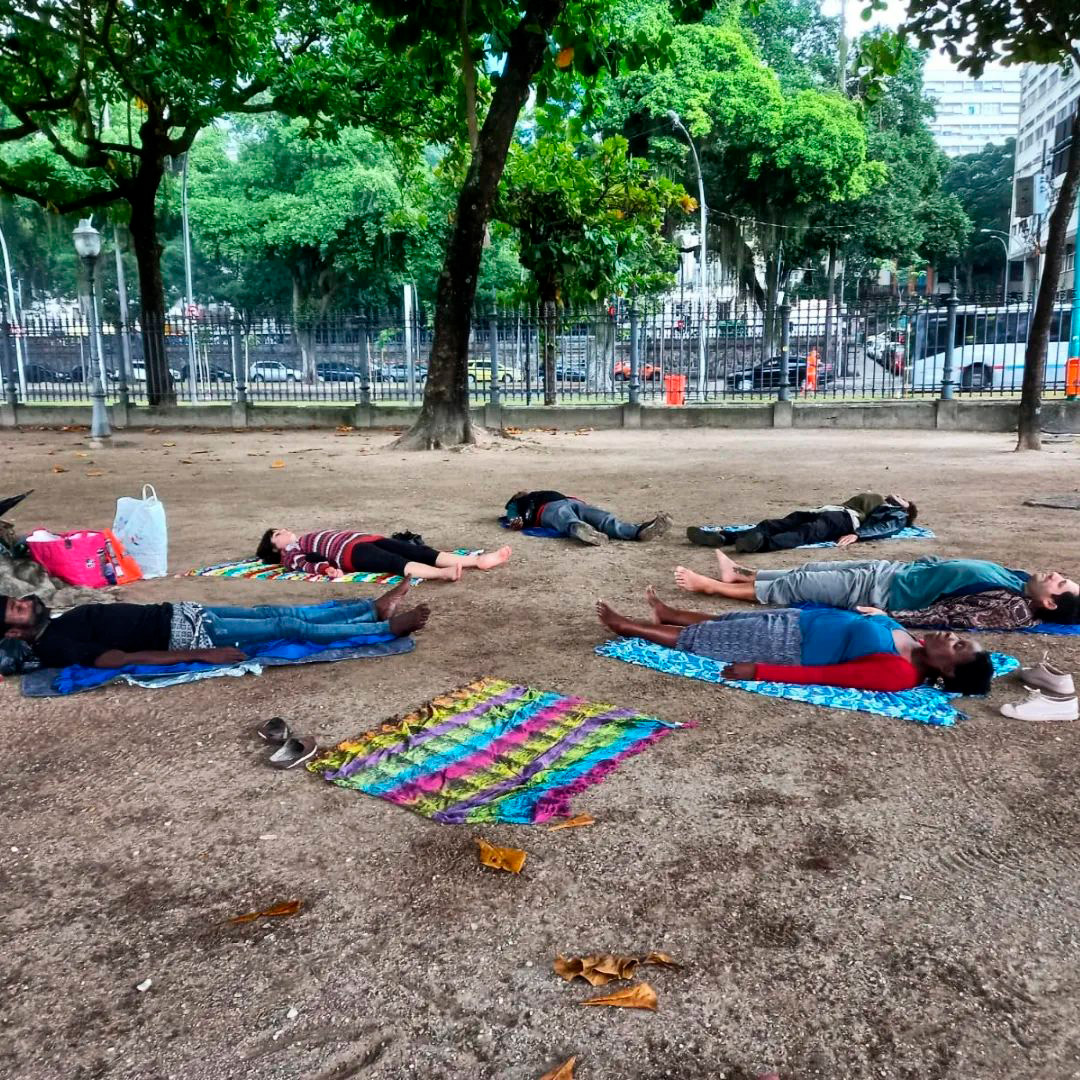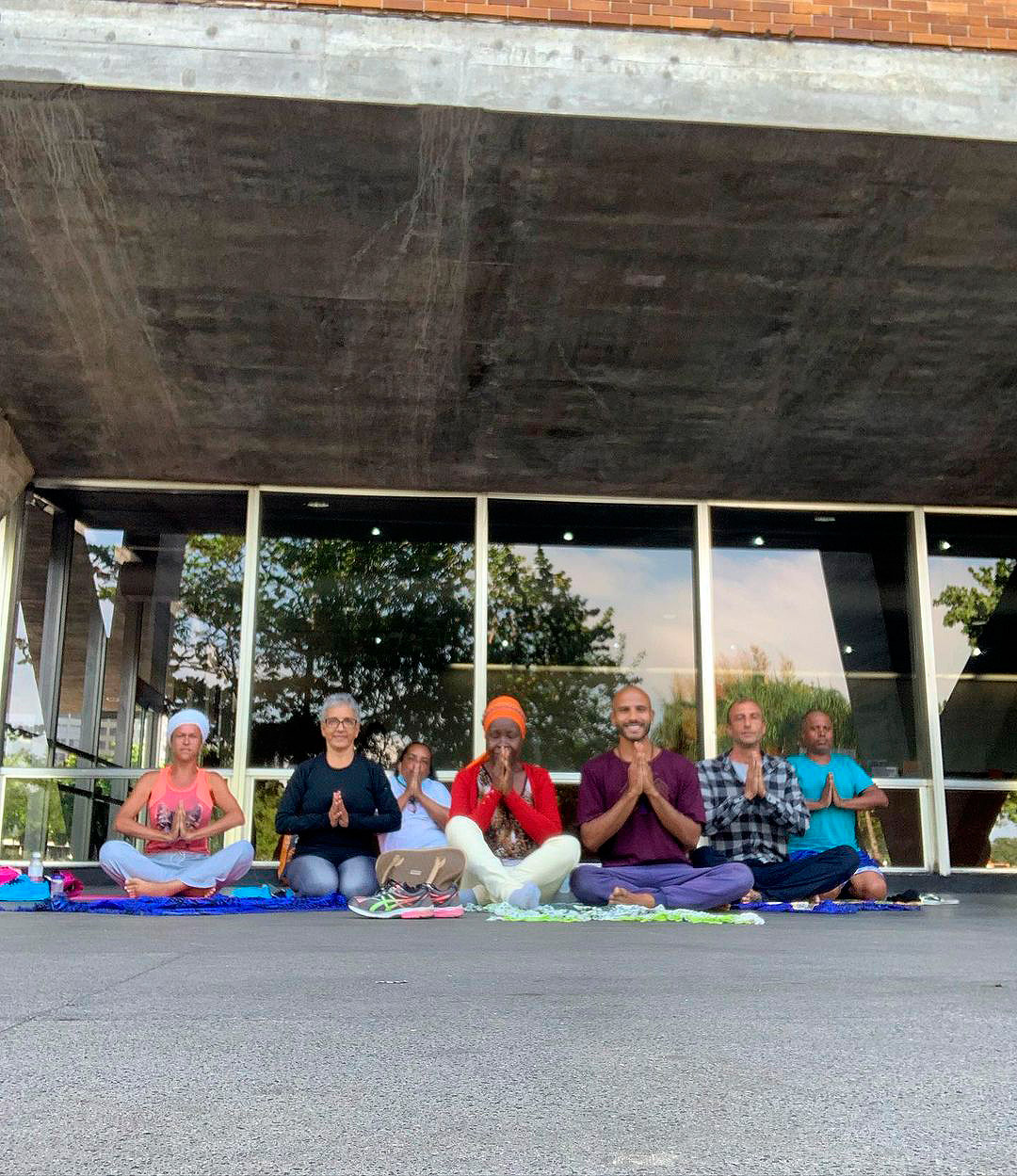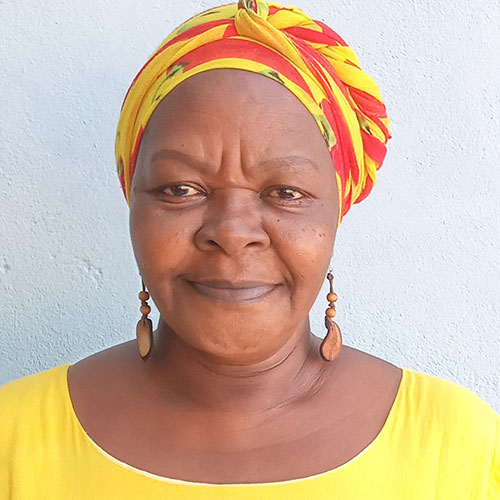Project promotes well-being for homeless people
"In addition to doing yoga and meditating, we also sit down to eat with everyone and while we do that, we talk. It's very important for both sides to be together, to keep in touch, to bond."


According to the website Tua Saúde, Yoga is a practise that aims to connect the body and mind through exercises that help control stress, anxiety, and pain in the body and spine, as well as improve balance and promote a sense of well-being and disposition.
When the topic is Meditation, according to Instituto Federal do Rio Grande do Sul, this practise helps reduce stress, addictions, depressive symptoms, anxiety, boosts self-esteem, and keeps your memory in good shape.
This is how the Yoga de Rua project (Street Yoga) helps the people who benefit from it. Who are these beneficiaries? The homeless.
André Andrade Pereira, a professor of pedagogy at the Federal Fluminense University of Angra dos Reis, which is southwest of Rio de Janeiro, came up with the idea for Street Yoga.


Read the article below to learn more about this loving, welcoming, inclusive, and humanitarian project that has been running since November 2015.
During an interview, Eliane Rogério, a psychotherapist and volunteer Yoga teacher for the project, describes how this innovative and necessary initiative began in the lives of homeless people in need.
In the beginning, André’s objective was to serve these people some breakfast, but soon after he decided to enrich the action by offering yoga classes with meditations, before that first meal of the day. After another group carried out a similar action that served offered breakfast, they saw no need to continue and once again innovated, changing class times and then beginning to serve lunches after these practises.
Neuza Nascimento: Besides yoga and meditation, what is the difference between you and other groups that provide meals for this particular audience?
Elaine Rogério: The difference is that André realized that it’s not enough to feed these people’s bodies; we also need to feed their souls. In addition to practicing yoga and meditating, we sit down and eat with them, and while we eat, we talk. It’s very important for us and for them to be together, to make contact, and to connect during lunch. In my five years of experience with Street Yoga, I’ve realized that these individuals are very fragile and in need of attention. They crave affection, the company of others, the sense of belonging, and acceptance from us. Food and nourishment are crucial, but without contact, without human relationships, there won’t be any changes, and they won’t be able to move away from their current situation. We all need affection, attention, and who doesn’t want to be seen and acknowledged?


Additional actions
Other activities performed by Yoga de Rua are also crucial, as they certainly raise the esteem of the beneficiaries, making them feel, at least for a short time, that they are a part of society as a common being. These activities include retreat stays, theatre, and exhibition visits. We also give them important information, such as where they can take a shower.
Nascimento Neuza: How does the project manage to carry out these activities?
Eliane Rogério says: In the case of retreats, we usually get free stays. We’ve already held five retreats, and when the Pandemic hit, we were at a Yoga farm in Vassouras, south of Rio de Janeiro. We left on a Thursday and returned on a Sunday. We do not pay for housing; instead, we contribute to the cost of electricity. So far, we have been able to receive free tickets for trips to theatres and exhibitions.
Nascimento Neuza: What do you enjoy most about this project?
Eliane Rogério: The satisfaction of witnessing the changes that have occurred in these people’s lives.
Neuza Nascimento: And what are these changes?
Eliane Rogério: For example, Rodrigo, one of our beneficiearies, who now works in a hotel under a formal contract, was able to rent a house despite living in a low-income neighbourhood. With great joy, I received a call from him inviting me to lunch and informing me that he could now pay. Another one, whose name I can’t recall right now, got a job as a janitor. There are a few people who I believe are on their way.
We have many examples of results, but in order not to go on too long, I will only mention one more. Last Christmas in 2021, I went for a walk on the beach and heard someone shouting my name along the way. I looked, but I couldn’t recognise it at first. As he approached, he greeted me, introduced himself, and said, “Look, I will never forget your classes; I am now working over there in that tent.” He thanked me profusely, that was a Christmas present for me.
Still speaking of Rodrigo, Eliane ays he used to fall drunks in the street. Continuing, she recognises that the heaviest drug is alcohol, because cocaine is expensive and access is limited, whereas alcohol is cheap or even free, as there is always someone to offer.
Eliane Rogério finishes
“What I have heard from many people in these five years of work as a volunteer is that there are many support groups for the street population, but like ours, they are very few. This makes us happy and proud of our efforts.
André, the project’s creator, even slept with these people for five days in order to understand and put himself in their shoes; it was a laboratory experience. Our goal is to be able to prepare and guide these people into the world.”
Due to the pandemic, the project is currently taking place at Aterro do Flamengo in Rio de Janeiro’s South Zone on Mondays, Wednesdays, and Saturdays, with short 30-minute practises beginning at 11 a.m. The “Comida que Cura” project provides vegetarian food, which adds value to this action.


Ways to Help Yoga de Rua
– Volunteers: Teaching Yoga or assisting in the kitchen
– Sponsor the project
Donate here and help as you can, for more information, follow on Instagram Yoga de Rua and Comida que Cura.



